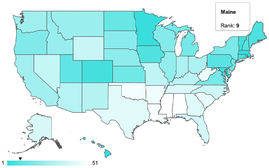Processing Your Payment
Please do not leave this page until complete. This can take a few moments.
- News
-
Editions
-
- Lists
-
Viewpoints
-
Our Events
-
Event Info
- Women's Leadership Forum 2025
- On the Road with Mainebiz in Bethel
- Health Care Forum 2025
- On The Road with Mainebiz in Greenville
- On The Road with Mainebiz in Waterville
- Small Business Forum 2025
- Outstanding Women in Business Reception 2025
- On The Road with Mainebiz in Bath
- 60 Ideas in 60 Minutes Portland 2025
- 40 Under 40 Awards Reception 2025
- On The Road with Mainebiz in Lewiston / Auburn
- 60 Ideas in 60 Minutes Bangor 2025
Award Honorees
- 2025 Business Leaders of the Year
- 2024 Women to Watch Honorees
- 2024 Business Leaders of the Year
- 2023 NextUp: 40 Under 40 Honorees
- 2023 Women to Watch Honorees
- 2023 Business Leaders of the Year
- 2022 NextUp: 40 Under 40 Honorees
- 2022 Women to Watch Honorees
- 2022 Business Leaders of the Year
-
-
Calendar
-
Biz Marketplace
- News
- Editions
- Lists
- Viewpoints
-
Our Events
Event Info
- View all Events
- Women's Leadership Forum 2025
- On the Road with Mainebiz in Bethel
- Health Care Forum 2025
- On The Road with Mainebiz in Greenville
- On The Road with Mainebiz in Waterville
- + More
Award Honorees
- 2025 Business Leaders of the Year
- 2024 Women to Watch Honorees
- 2024 Business Leaders of the Year
- 2023 NextUp: 40 Under 40 Honorees
- 2023 Women to Watch Honorees
- 2023 Business Leaders of the Year
- + More
- 2022 NextUp: 40 Under 40 Honorees
- 2022 Women to Watch Honorees
- 2022 Business Leaders of the Year
- Nomination Forms
- Calendar
- Biz Marketplace
MaineCare expansion faces challenges at federal level as well
Gov. Paul LePage’s refusal to implement Medicaid expansion approved by 59% of Maine voters on Tuesday until it’s fully funded isn’t the only hurdle advocates of the expansion will face in their efforts to gain coverage for more than 70,000 additional Mainers in the state's MaineCare program.
The Bangor Daily News reported that the federal Centers for Medicaid and Medicare Services, in a speech Tuesday by CMS Administrator Seema Verma, told state Medicaid directors it was working to “reset the federal-state relationship” and would be streamlining the process of state waivers to give states more flexibility in designing their Medicaid programs.
The LePage administration already has an application in the pipeline to charge monthly premiums of up to $40 for Maine’s Medicaid program, which is called MaineCare, require $10 copays for some medical services and implement a 20-hour-per-week work requirement, the newspaper reported.
Maine Department of Health and Human Service issued a statement Tuesday supporting Verma’s announcement. “We look forward to working with the administration to fulfill our shared objective of creating a sustainable Medicaid program through the promotion of individual accountability,” DHHS stated, according to the BDN.
Mitchell Stein, a Maine-based independent health policy analyst, told the BDN that imposing enrollees with work requirements, monthly premiums and co-pays would simply discourage enrollment in MaineCare and runs counter to the intent of expanded enrollment approved by a sizeable margin in Tuesday’s statewide referendum on Medicaid expansion.
The Kaiser Family Foundation reports that an estimated 274,500 Mainers currently are enrolled in MaineCare.
An analysis published in late September by the foundation, which summarized findings from 153 studies of the impact of state Medicaid expansions under the Affordable Care Act, reported these findings:
- "Coverage: Studies show that Medicaid expansion results in significant coverage gains and reductions in uninsured rates, both among the low-income population broadly and within specific vulnerable populations. States implementing the expansion through a waiver have seen similar gains in coverage, but some provisions in these waivers may present barriers to coverage.
- "Access to care, utilization, affordability, and health outcomes: Most research demonstrates that Medicaid expansion positively affects access to care, utilization of services, the affordability of care, and financial security among the low-income population. Studies have also shown improved self-reported health following expansion, and one new study demonstrated a positive association between expansion and health outcomes. However, further research is needed to more fully determine effects on outcomes.
- "Economic measures: Analyses find positive effects of expansion on multiple economic outcomes, despite Medicaid enrollment growth initially exceeding projections in many states. Studies also show that Medicaid expansions result in reductions in uncompensated care costs for hospitals and clinics as well as positive or neutral effects on employment and the labor market."














Comments